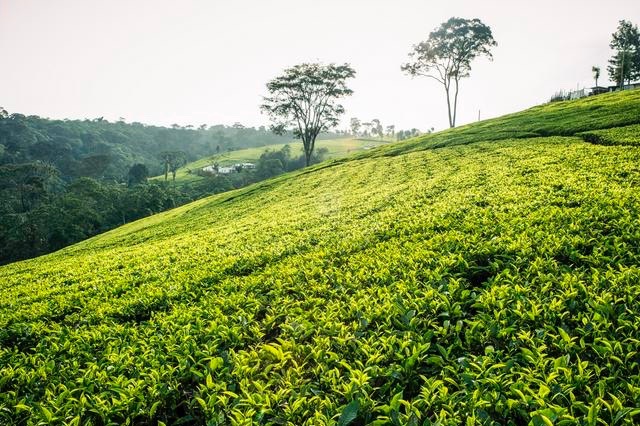Food demand in sub-Saharan Africa is expected to triple by 2050. As countries in this region attempt to meet this growing demand, they are placed in a challenging position in regards to sustainable development. Agricultural conversion is the primary driver of deforestation, meaning that sub-Saharan African countries face conflicting commitments to UN Sustainable Development Goals 2 (end hunger) and 15 (protect terrestrial ecosystems).
OUR APPROACH: The team aims to address agricultural expansion as a driver of deforestation and biodiversity loss in sub-Saharan Africa, focusing on governance and political economy as drivers. This group is combining spatial and political economy analyses to better reconcile these competing goals. Their work also includes working in Ethiopia, Ghana, and Tanzania and building on previous efforts by the International Institute for Environment and Development.

Managing Trade-Offs
Agricultural expansion is the greatest driver of biodiversity loss. Managing trade-offs between conserving nature and increasing agricultural production is essential in Africa. Policy makers are more valuable to instituting change than improved technology. It is important to recognize the trade-offs between agricultural production and nature conservation where these can be openly discussed and negotiated.
Management Tools
A combination of trade-off analysis methods is increasingly common. The most valuable analysis of conservation and agriculture include stakeholder involvement. Knowledge coproduction processes can be a strategy for developing sensitivity to trade-offs and learning how to put these insights into practice.
Efforts to Reduce Social and Environmental Trade-offs
Current agricultural and forest policies are geared towards economic gain, with little consideration for biodiversity conservation. Agricultural policies focus on productivity increase through agricultural modernization and value-chain development. Better trade-off management will prevent the loss of remaining forests and woodlands outside of enforced protected areas.
This working paper compiles research on one of the most challenging development goals in sub-Saharan Africa – increasing agricultural production without doing so at the cost of forests. The working paper compiles lessons learned from work in Zambia and Ethiopia and identifies 10 elements essential to balancing conservation and agriculture in the region.
Agricultural expansion is the greatest driver of the loss of nature and its biodiversity and ecosystem services worldwide. This briefing explains basic concepts of better trade-off management and identifies four key changes in policy and practice needed to conserve nature as well as increase agricultural production.
Boosting agricultural production to meet the food demands of growing and more prosperous populations increasingly comes with a cost to the ecosystems upon which human life more broadly depends. This paper summarizes key concepts relating to trade-offs and synergies, including trade-off analysis and management, to make approaches and methods more accessible.
In Ethiopia, as in many countries in Africa, policymakers need to better understand and manage the major trade-offs — existing and future — between two competing objectives: increasing agricultural production to meet growing domestic food demand and conserving nature. This briefing explores this issue within the national context in Ethiopia, and makes suggestions for the way forward.
International Institute for Environment and Development (IIED)
International Institute for Environment and Development (IIED)
Environmental Protection Agency, Ghana
Netherlands Environmental Agency
University of Cambridge
Ethiopian Development Research Institute
Centre for International Forestry Research (CIFOR)
Civic Response
The Nature Conservancy
Tanzania Forest Conservation Group
World Agroforestry Centre (ICRAF)
Copperbelt University
University of Ghana
Indaba Agricultural Policy Research Institute
Foundation for Science, Basque Centre for Climate Change
University of Edinburgh
Wageningen University; World Conservation Monitoring Centre
UN Food and Agriculture Organization, Ethiopia
International Food Policy Research Institute (IFPRI)
Imperial College
The Nature Conservancy
University of Cambridge
University of Oxford